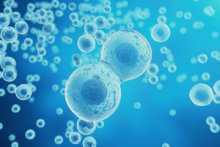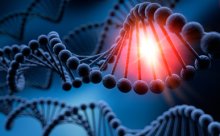
Researchers have reviewed the evidence on early menopause in breast cancer patients and have come up with a series of recommendations to safely manage this side-effect.
The recommendations are published in The Journal of Clinical Endocrinology and Metabolism and are the result of a review of a number of clinical trials, observational studies and guidelines.

A new study has found that moderate-to-vigorous physical activity can help to allay fatigue and “chemo brain” in breast cancer patients and survivors.
The University of Illinois research looked at the association between physical activity, fatigue and performance on cognitive tasks in nearly 300 breast cancer survivors.

Scientists have discovered a new stem cell-based cancer treatment that can target and kill breast cancer cells that have spread in mice.
The researchers at the University of California Irvine (UCI) also hope that the new treatment may prevent some of the toxic side-effects of chemotherapy by providing a more localised therapy.

A new study has estimated the ages at which women with BRCA 1 and 2 mutations are most at risk of developing breast and ovarian cancer.
The UK research found that the highest rates of breast cancer in women with the faulty BRCA1 gene were seen between the ages of 30 to 40. This peak occurred a decade later for those with a faulty BRCA2 gene.

A new study has found that neuropathy or nerve pain brought on by chemotherapy can continue for many years after treatment has finished.
The US study, published in the Journal of Clinical Oncology, followed more than 500 female cancer survivors (75% of whom had been treated for breast cancer).

A new study shows that the number of women living with advanced breast cancer in the USA is growing and BCAC believes the situation is likely to be the same in New Zealand.
The research, published in the journal Cancer Epidemiology, Biomarkers & Prevention, also looked at survival rates for women with metastatic breast cancer (MBC), which is breast cancer that has spread to other parts of the body.

New research shows that women taking Aromatase Inhibitors (AIs) as part of their breast cancer treatment have a two to four fold increase in bone loss compared to the usual rate associated with menopause.
AIs are often prescribed for women with hormone-receptive breast cancer and work to block the production of oestrogen in post-menopausal women.

New research has found that random and unpredictable DNA copying “mistakes” are responsible for nearly two-thirds of the mutations that cause cancer.
This means “environmental” influences, such as nutrition and exercise, play less of a role in many cancer cases than previously thought.

Eating foods rich in isoflavones, which are found in soy products, could help to reduce the death rate in women with certain types of breast cancer.
A new study, published in the journal Cancer, found that isoflavones are associated with lower death rates in women with hormone-receptor-negative breast cancer and those who are not receiving endocrine therapy.

New results from a major clinical trial testing the breakthrough breast cancer drug, Perjeta, show that it helped women with early HER-2 Positive breast cancer live longer.
Headline results from the Phase III APHINITY trial have just been released by the pharmaceutical company Roche.



